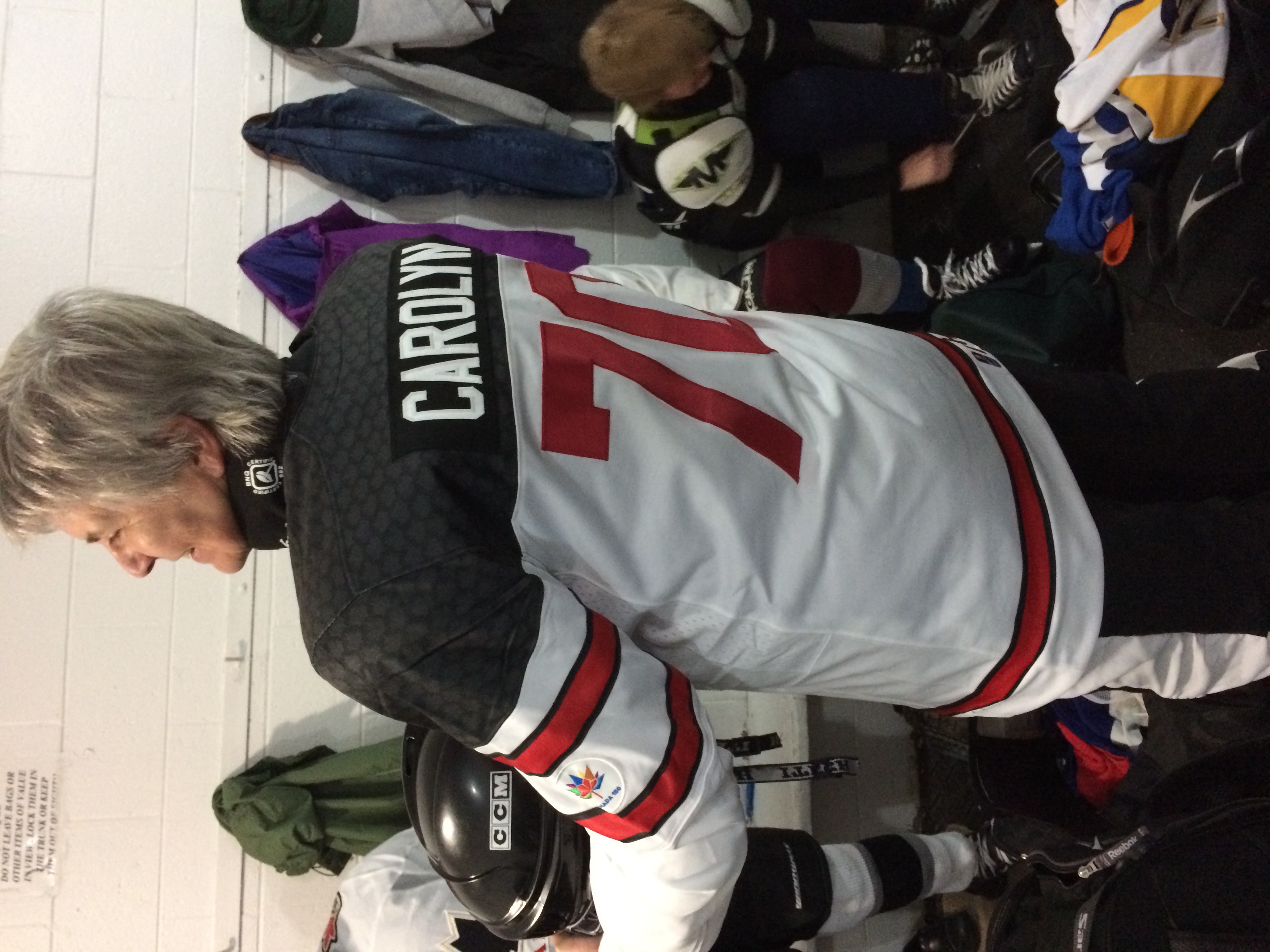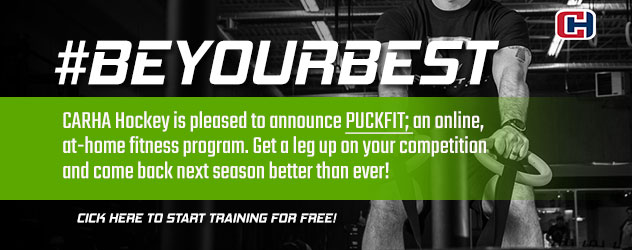Explore the inspiring journey behind 'Liz's Sunday Game,' a groundbreaking initiative in St. John's, Newfoundland, designed to introduce beginner female players to hockey. This innovative Sunday game has captured attention as the subject of a new documentary. Join founder Liz as she shares insights into recruitment, inclusivity, breaking stereotypes, and fostering self-confidence among players!
What inspired the creation of The Golden League, and how were the first players recruited?
Well, I started playing around 1999 and I am 71 years old now. I did not play at all growing up as I grew up in the US. Then, a group of women started a women’s league for people at the early levels. Within a few years it developed to a point where someone who was really a beginner wouldn’t feel welcome there. I saw how the beginners struggled. Back then, there weren’t many women coming into it that had played as youngsters, so they hadn’t gotten any early coaching or experience.
In 2006 I was gifted an hour of ice time at one of our arenas that’s a smaller ice sheet. It’s the oldest or second oldest arena in Canada and it’s rickety but we love it. A group of people I knew who had an hour of ice gifted me this ice and I wasn’t quite sure, I just said yes. I think it’s like this everywhere but it’s really hard to get ice time. This was at 3pm on Sunday afternoon, to me it was prime time.
After getting this ice time I thought about these beginner women coming into the other women’s league, Eastern Edge Hockey. So, I decided to start something, and as soon as I started mentioning it to people, recruitment wasn’t necessary. I had a wait list very quickly.
We believe really strongly in equal ice time for everyone. So, one group will play for 2 minutes, and the next group will play for 2 minutes. It’s very structured like that. It wasn’t typical like how people fill out a form and say which position they play. Nobody knew what the positions were called at this point, much less what they were playing.
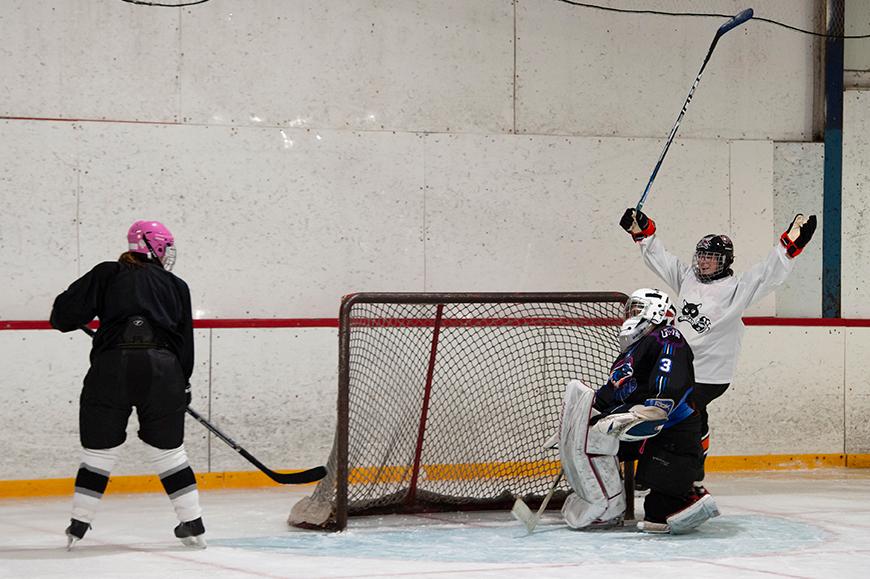
Photo credit - Vaida Nairn
Sport provides a unique platform for change, how has The Golden League contributed to breaking down barriers for women in hockey?
Well, this group of women never had a name. We never had anything identifying. Informally people decided to call it Liz’s Sunday Game. Someone wanted to make me jerseys with my logo, and we had no idea what. Then, by chance, I met this filmmaker/photographer who had never photographed hockey before. She asked if she could come by and try it out. Then, after not long of getting to know our game and she said “Liz, there’s a story here. I want to make a film.” She had to write grants to get money and one of the grants she applied to was Bell Fibe 1. On this grant, she had to put the name, which is where The Golden League came from. The documentary has been huge, it’s been such an amazing thing.
My first rules were that if you were playing in that league or had another pick-up game, you couldn’t come to my game. There was so few opportunities that I wanted it to be for the people who didn’t have opportunity to play. The way I envisioned it was 3 things: newer, older, and slower skaters.
But now almost every night of the week there’s women’s games in St. John's now which is a big deal. People just weren’t satisfied playing one night a week. They knew they weren’t going to get better only playing one night a week. So, because there wasn’t enough opportunity for people, I mentored 3 or 4 people to organize hockey games. Then we decide which players fit in best for each game.
Through learning over time, one of my lines is faster and the other is slower. I mean, in the grand scheme of things were all slow, but in my mind, this game serves best to somewhat slower people. These are the new people who can’t skate. I’m like “If you can skate backwards, I wouldn’t let you play with us.” I don’t run this like a typical pick-up game because once your there, you’re not grand mothered in for life.
I then started hearing from people in that more advanced league “I’ve got a friend, or I was talking about hockey, can I send your email. Over time I’ve changed my criteria for selecting people because I’ve gotten better at determining who would be good for the game.
I wanted the culture to be close knit, but I wanted individuals to cycle through. Technically I have room for 16 skaters each week and two goalies. The easiest thing for me would be to have a steady set of 16 people who come each week, and if they had to cancel, I’d bring a sub, but I don’t do that. It doesn’t give the subs enough opportunity and they get discouraged. I want them building confidence so they can play in that next league. Then, I take people from the slower line and move them to the faster line to help them grow.
Never in my life was I going to stand out as a hockey player, but I stand out as someone who can organize hockey for beginners.
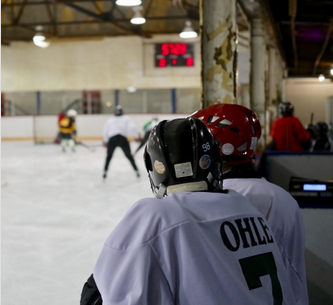
Photo credit - Andrew Sampson / CBC
What some of the biggest misconceptions about women’s hockey, and how can we address them?
Well, I didn’t grow up in Canada, I grew up in the US where hockey wasn’t talked about as much as other sports like football. I moved to Canada in my mid 40s, prior to that I had a partner who was Canadian and big into hockey, so I had seen games, but didn’t know much about it, or conceive myself playing. But I see the misconceptions. I have so many women that skate with me who have spent 10 hours a week sitting in a cold arena watching their kids and have done that for decades. Another woman who had 4 sons who all played hockey. It wasn’t until they each got their driver’s licence that she could start to conceive that she could play. I never knew I’d have the opportunity to see these misconceptions. You know, I’ve had women start crying just putting on the equipment, because they never thought it would be for them. Everyone is terrified and I tell them that it’s normal.
Of course I want it to be physically safe, but it is so much more important to me that it is emotionally safe. That is not hockey culture. Normally, it’s just jump in and sink or swim. I just think it helps that I didn’t grow up with any of those notions. I just know what it’s like for me when I’m a beginner at anything. I’m timid and want to understand how it works. So, I have this 2–3-page description of the game that I give to new people. And I tell them to sit down and take the time to read it. It has basic stuff like if you’re wearing dark, which bench to sit at. I make sure they’re introduced to others on their line before they leave the dressing room. It’s things like that that make players comfortable.
Also, the filmmaker is a genius, I can’t believe what she made of it. We had this whole group of people coming to the rink and going to people’s homes to interview them. She was able to pull stories that I didn’t know existed in some of these people’s lives. We have people discuss their mental health concerns talking about how the hockey game is their therapy. People are very vulnerable. Its really meaningful.
After seeing that, I finally got it, that its different. I just set it up the way it made sense to me, I wasn’t trying to make it different, I was just trying to make it work for people.
Photo credit - Andrew Sampson/CBC
How has playing in The Golden League impacted your self-confidence, and overall wellbeing?
I have definitely seen that in players, especially in building self-confidence. I’ve got one person who will say “This is what prepares me to tackle whatever the week throws at me” because it’s on Sundays, “This helps me deal with it.” But for me, I lived in Newfoundland 4 years before I started playing hockey. Other newcomers and I to Canada often say that that after playing hockey they feel like their Canadian. Like there’s a belonging and understanding that comes with it.
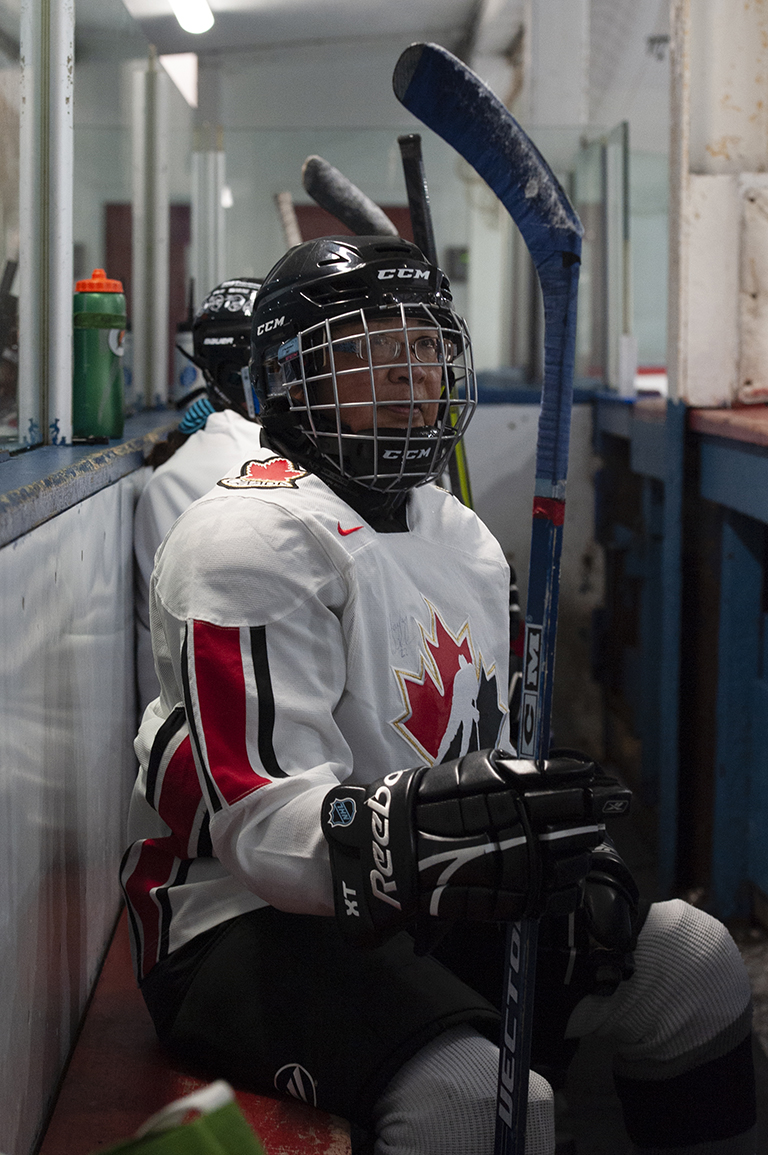
Photo credit - Vaida Nairn
What is something that you’ve found to foster a good environment and belonging among players in your league?
Here's something that’s different. The other pick-up leagues got jerseys for their league and people were asking if we could do that. And honestly, I cringed. The main reason is that I want the fluid nature of people coming in and out of the program. Also, what’s going to make a scared to death newcomer that doesn’t know if they’ll survive the first shift, then everybody having a jersey except them. It’s not inclusive, they don’t feel like they belong. And it’s so outside of hockey culture to care about that or think about that. But once I explain it to people, they can picture how they might feel when they were a beginner.
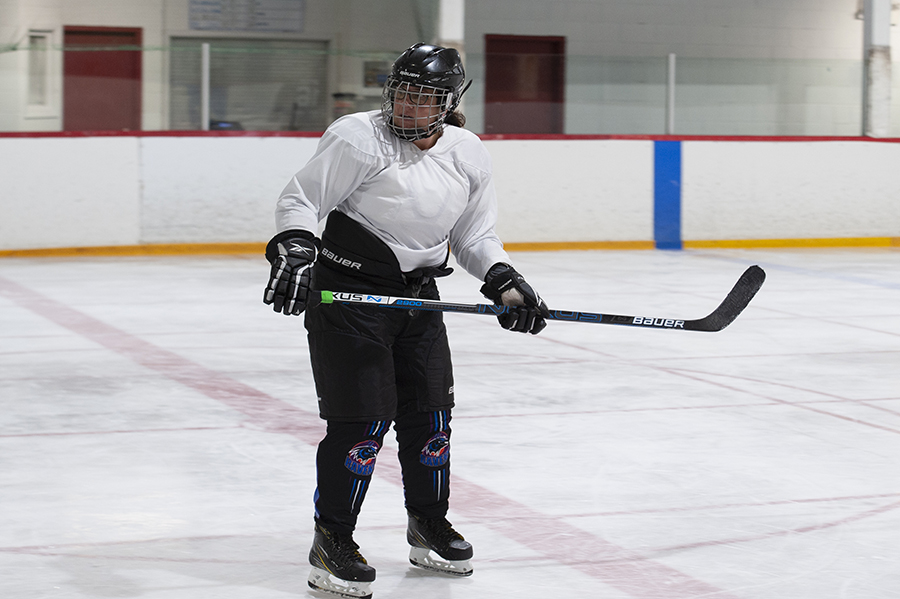
Photo credit - Vaida Nairn
